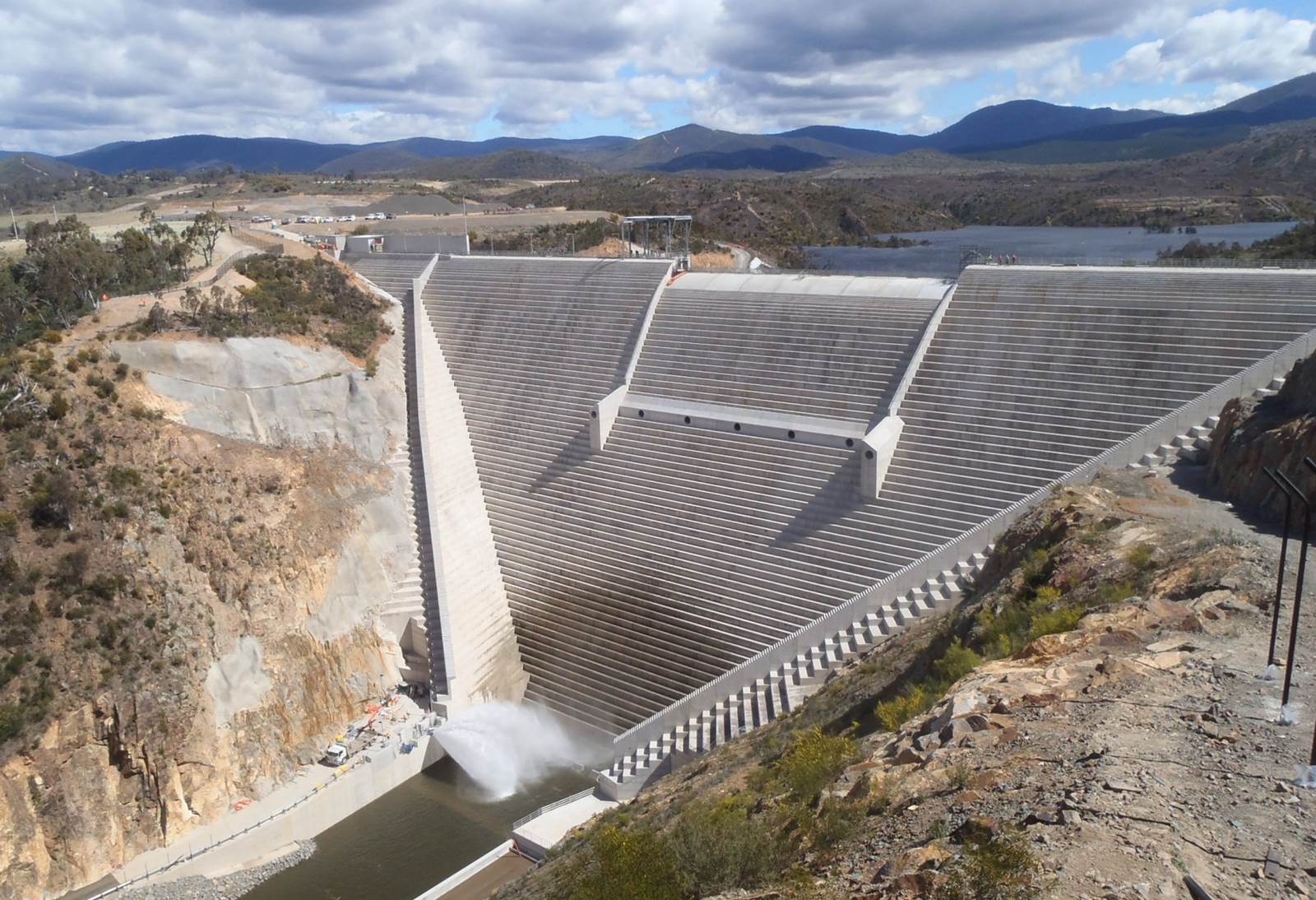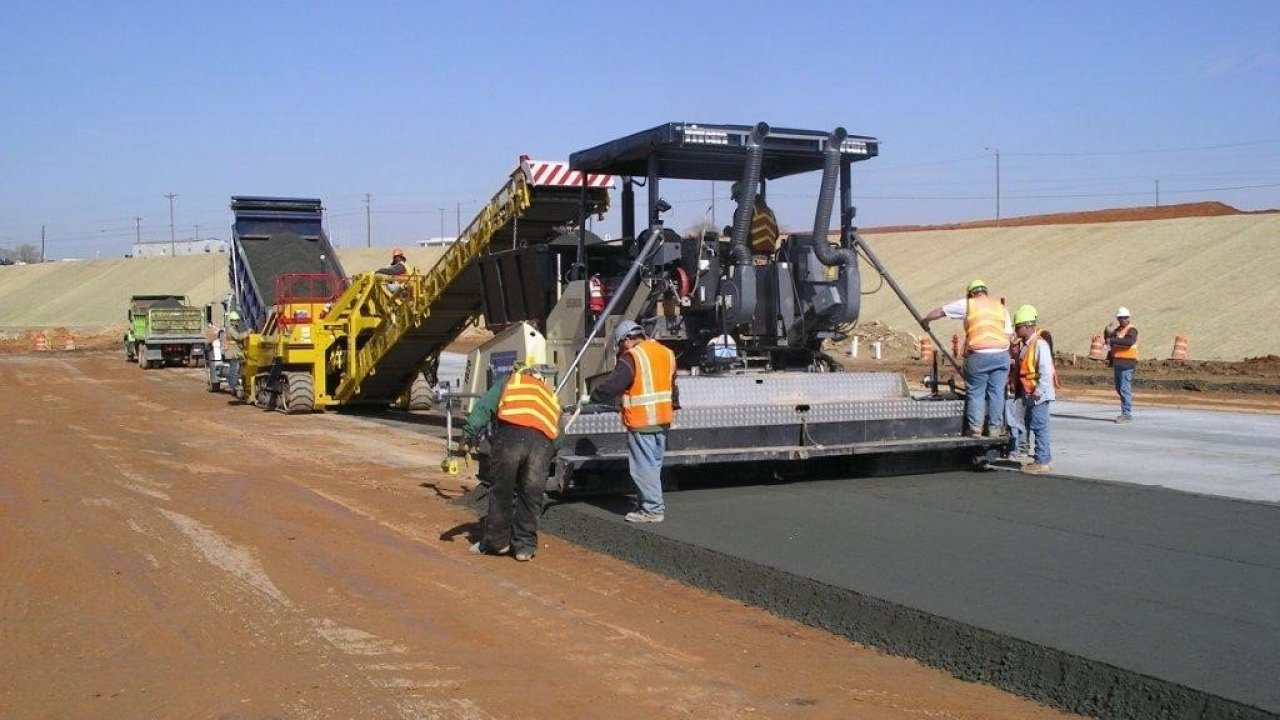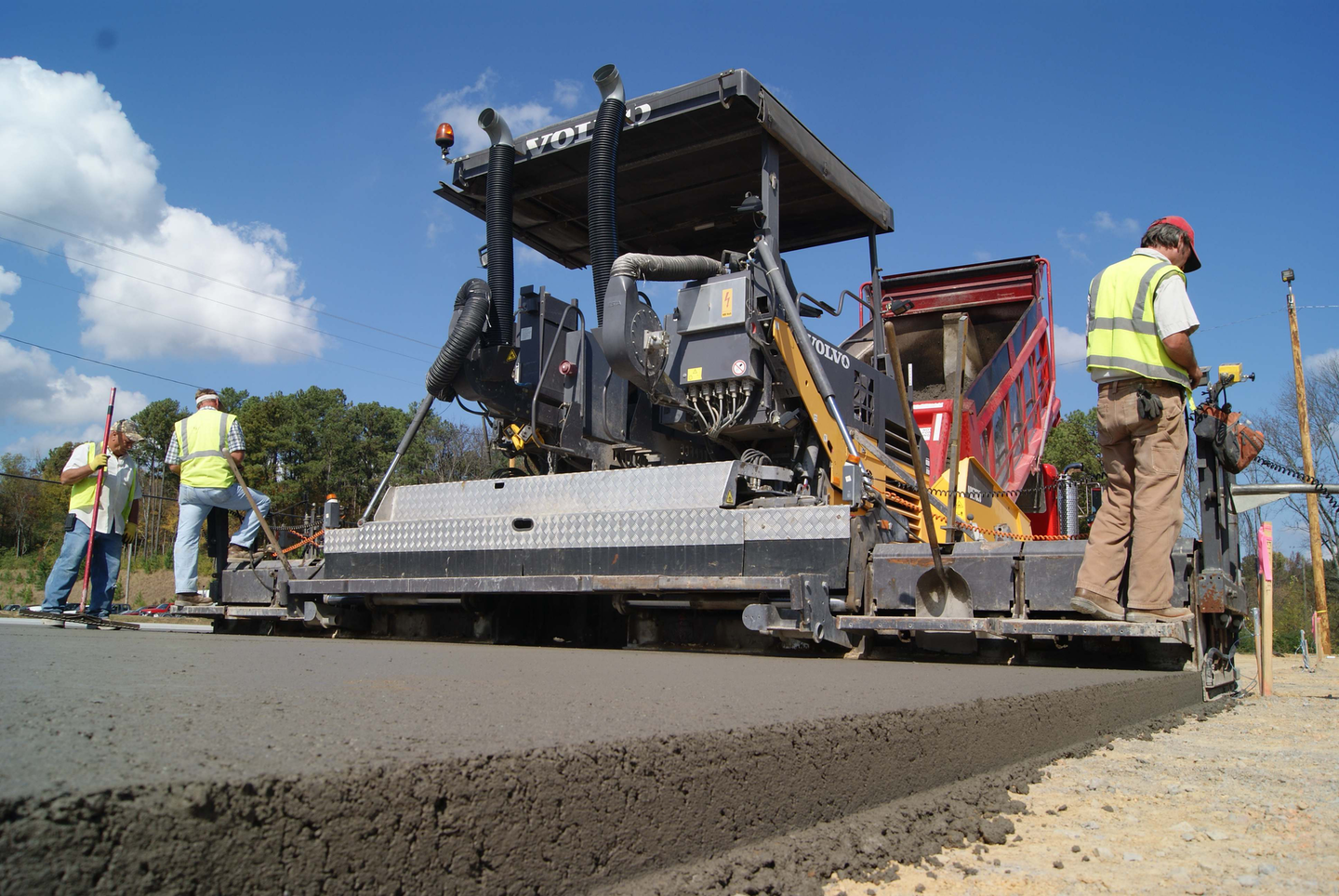Roller-Compacted Concrete
Roller-Compacted Concrete (RCC), so-called Roller Concrete, is a specific type of concrete that is suitable for paving and dams. One of the unique features of Roller Concrete is its slump, about zero, in the fresh state. This feature allows contractors to consolidate it properly and achieve the desired characteristic. RCC for paving is spread by conventional road machinery and compacted by metal rollers and vibratory rollers.
The ingredients of RCC, like Normal Concrete, are water, cement (or cement additives), aggregate (sand) and admixtures (chemical or mineral). Although, the amount of them in Roller Concrete is different from Normal Concrete. A large portion of the Roller Compacted Concrete mix consists of aggregates. The amount and composition of these fine and coarse particles affect properties such as efficiency, density, compressive strength, bending strength, thermal characteristics, durability and performance in final product. The aggregates used in NC can also appropriate for RCC; However, the aggregates gradation of RCC are different from that of the NC.
Among the cement materials used in the composition of RCC concrete, we can mention ordinary cement (Portland), mixed cement (with silica fume, fly ash, and slag), and pozzolan. Choosing the type of cement depends on the possibility of sulphate attack, alkali-silica reaction, and erosion. Portland cement types I and II are the most common cement materials used in Roller Concrete.
Due to the dryness of RCC (zero-slump), the percentage of chemical admixtures in it is higher than in NC. Water-reducing and retarding admixtures contribute to better compaction of concrete by increasing adhesion and efficiency. In addition, these admixtures can also improve the bond between the side layers or the top layers of RCC.
space
Fiber-Reinforced Roller-Compacted Concrete
Fiber-reinforced Roller Concrete is a type of RCC in which steel fibers exist to strengthen pavement resistance. Few studies have been conducted on the performance of this type of RCC. These studies have shown that the amount of water required (due to the increase in specific surface area) and density (due to the steel fibers) in this type of Roller Concrete is slightly higher than the Conventional type. In addition, the presence of steel fibers increases tensile strength. However, using these materials in the composition of RCC is not popular.
Colored Roller-Compacted Concrete
Another type of RCC is Colored Roller Concrete. This type is suitable for constructing the surface of open areas such as parking lots, barracks, etc. The color of Rolled Concrete improves the paving performance in absorbing/reflecting light and makes the appearance more attractive. Despite the slow development of roller concrete technology in Iran, its color type is common.
Compressive strength of Roller-Compacted concrete
The compressive strength of RCC is similar to Normal Concrete (between 28 and 41 MPa). This resistance depends on several factors. Nevertheless, the degree of compaction compared to the total thickness is the most significant parameter affecting the compressive strength of RCC. The degree of compaction also controls other parameters like porosity and density. The remaining 1% of entrained air reduces the compressive strength of RCC by about 5%. Also, a 5% decrease in the density of RCC can cause a 40% decrease in compressive strength. In general, using more fine aggregate and the low water-cement ratio can increase the compressive strength of Rolled Concrete.
Flexural strength of Roller-Compacted Concrete
The flexural strength of RCC is usually between 3.5 and 7 MPa. It has a direct relationship with density and compressive strength. Bending stress is the controlling parameter of fatigue failure in Rolled Concrete. In the case of proper compaction, the possibility of cracks due to fatigue reduce.
Advantages of Roller-Compacted Concrete
Roller Concrete has several advantages over similar options in paving (asphalt) and dam construction (Conventional Concrete). The following are the most important advantages of RCC concrete over other materials:
- Low cost and fast execution
- Low maintenance
- Zero or low cost of formwork
- No deformation under heavy loads
- Reduction of cement consumption
- Low heat of hydration
- No need for reinforcement
- Resistant to high temperature
Disadvantages of Roller-Compacted Concrete
Along with all the advantages of Roller Concrete, the use of this material also comes with limitations. The main limitations or disadvantages of RCC are:
- If the suitable aggregate is not available, the bedrock of the foundation is weak/deep, or there is a possibility of settlement in the foundation, RCC will not be a suitable option.
- According to the possibility of water seepage occurring in dams constructed or repaired by RCC, an extra layer is necessary to stop the flow.
- Skilled labor is required for the proper execution of RCC.
- Achieving a smooth surface is difficult.
- Surface cracks are likely to occur.
space



